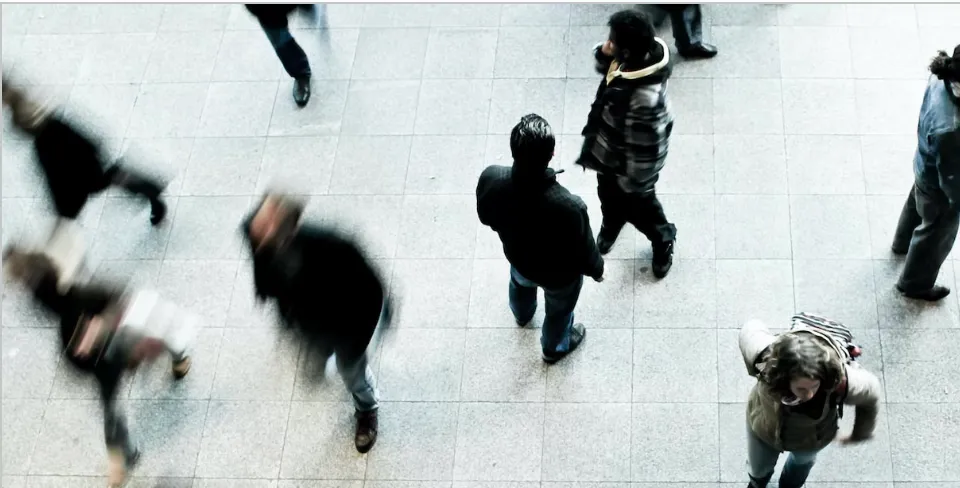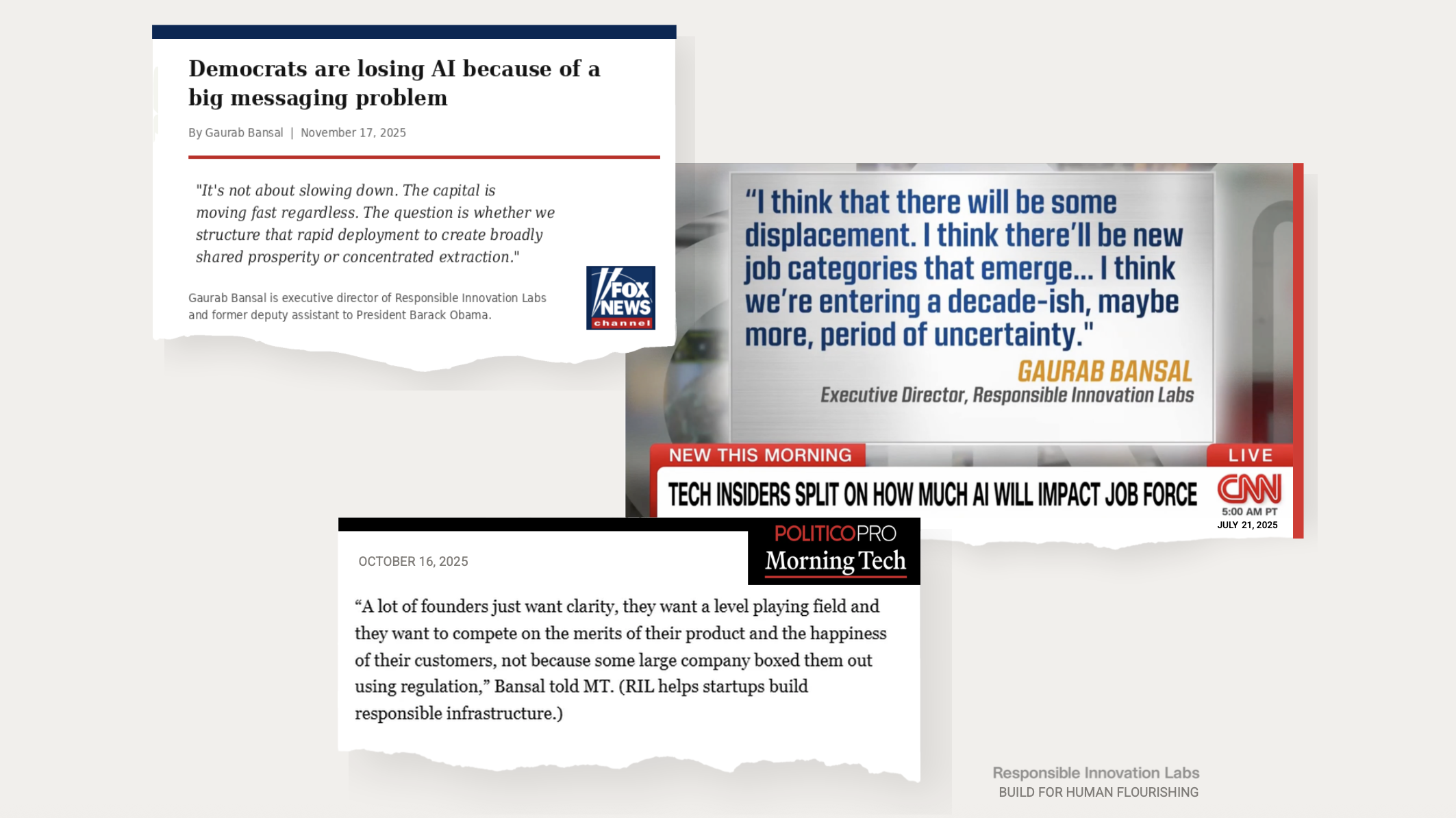Labor Day at the Event Horizon
Today and our choices. Tomorrow and what we decide to value.

I sit at a computer to make my living. Most days, I get on video meetings. Phone calls if I'm feeling old school. I write. I build my team and develop my organization's products, services, and consortium. I work to influence how powerful forces like technology shape society.
It's work I enjoy. But it bears little resemblance to the physical labor that Labor Day was created to honor in the late 19th century.
That disconnect used to feel like just a quirk of modern life. This year, it feels like a preview of something much bigger.
This weekend we Americans will enjoy a final backyard barbecue and take advantage of back-to-school sales. Meanwhile, AI is quietly reshaping work in ways that would astonish the railroad workers, miners, textile laborers, carpenters and other workers whose organizing led to the Labor Day holiday.
Holidays tell the story of our nation and peoples. They convey powerful symbolism and values beyond core remembrance. Labor Day means something. Or at least we want it to mean that we value all workers in America. Especially those whose working conditions can be physically arduous, taxing, and sometimes unsafe.
Labor Day was born from workers refusing to be treated like disposable parts in an industrial machine. They demanded dignity, fair treatment, a voice in their own fate. But somewhere along the way, we let the holiday drift. White collar work made it unclear who counted as "laborers." Marketing turned it into a shopping weekend.
The pattern emerging today is one of AI transforming work. A recent Stanford study found that early-career workers in jobs exposed to AI have seen their employment drop 13% since generative AI went mainstream. Their more experienced colleagues in the same jobs? They're stable for now, some even thriving.
AI isn't coming for everyone's job equally. At least not yet. It's coming for entry-level positions now. The electrician, nurse, and teacher are still working with their hands and hearts, but they too may soon be working alongside artificial assistants. If you work in customer service, you've probably already noticed the AI chatbots handling more help tickets. AI tools are changing how you work today if you're writing code, crunching financial data, and analyzing legal documents.
We're at the event horizon for Labor Day itself. The boundary where the day either evolves with changing work or disappears into the same irrelevance as harvest festivals. The point of no return where the holiday either adapts to new realities or gets pulled into historical irrelevance.
AI is accelerating a pattern we should recognize. New technology arrives and reshapes work. Ideally, we'd figure out how to help displaced workers transition and thrive. We've walked this path before. But we often fail that crucial last test.
The data tells a familiar story. Between 2000 and 2010, automation resulted in as much as 85% of manufacturing job losses, while trade accounted for just 13%. From 1990 to 2020, manufacturing output grew 40% while employment fell 30%. The machines got remarkably good at making things. We were remarkably bad at helping people adapt.
Those of us old enough remember what happened in the 80s and 90s. Manufacturing towns didn't just lose jobs. Communities lost their centers of gravity. Plants closed, neighborhoods emptied, deaths of despair spiked, and families scattered.
And every Labor Day, politicians from all sides give speeches about the dignity of work while support systems for transitioning workers remain underfunded, outdated, and inadequate for the moment.
We celebrated workers while abandoning many of them. There's something hollow about that kind of tribute.
We don't fully know how AI will transform work. I think tremendous benefits lie ahead: increased productivity, safer working conditions, precision, freedom from repetitive tasks that drain us. And more hopefully.
The question isn't whether we should develop AI. We should. The question is whether we're going to be proactively thoughtful about the workforce transition this time, about preserving the meaning and identity that all forms of hard work provide.
There's something revealing about our relationship with AI right now. We can feel genuinely relieved when an AI tool cuts our wait time from 30 minutes to 30 seconds, or when it helps us sort through complex information quickly. But when something important breaks, when we're anxious about medical results, when we need to solve a complex problem, we still want to talk to another human being.
We want to know that a human has thought it through or is at the helm making decisions.
That tension points toward what we actually value in work. It's not just about efficiency. It's about connection, judgment, empathy, creativity. The qualities that make humans irreplaceable.
So, what should future Labor Days celebrate? What deserves honor when algorithms can increasingly handle so much of what we used to take pride in doing ourselves?
Everyone has a role in answering that question. If you're building AI products, have genuine conversations with people whose jobs your technology might affect. If your company is adopting AI, be transparent about what's changing and invest in meaningful retraining, not just graceful exits. If you're a policymaker or educator, reexamine what skills are necessary for this emerging era and modernize education and workforce training accordingly.
These are urgent conversations without straightforward answers. We need to start now. Without them, we risk a future where change happens to us rather than by us.
This is why we work with startups to help them think about their role in shaping the future of work through AI and emerging technologies. When we convened startup builders and ecosystem leaders in July to explore this, it became clear that several different scenarios can play out depending on the choices we make now.
The future of Labor Day shouldn't be solely about preserving its past meaning. We're overdue in discovering what comes next. We can't afford a repeat of our failures where we celebrate workers but fail to support them through transitions.
The choice feels like it's still ours to make, though perhaps not for much longer. What we decide to value about human effort will reveal what we value about human worth.
This Labor Day, that choice is worth celebrating. What comes after the long weekend is the work of acting on it.
View the article here.
Additional Resources and Tools
Get started on the things you can control:

